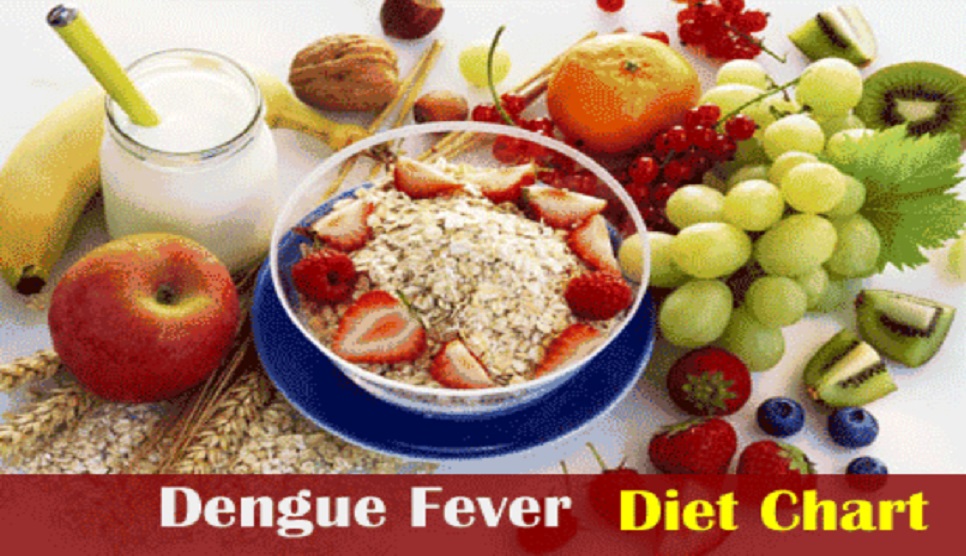Dengue recovery diet: Foods to improve platelet count and speed up recovery
Sun Online Desk
Published: 30 Aug 2023

Dengue fever cases are rising across the country and while most of the cases are mild, many of the people may experience severe symptoms and complications like haemorrhagic fever and a sudden deterioration in platelet count.
Dr G Sushma shares dietary tips for improving platelets in dengue:
1. Hydration
Adequate hydration is paramount. The fever, sweating, and potential vomiting during dengue fever can lead to dehydration, which further exacerbates the stress on the body. Consuming ample fluids is essential to maintain the body's fluid equilibrium, promote optimal organ function, and facilitate the elimination of toxins. Water, coconut water, and clear broths are particularly recommended, as they provide hydration along with electrolytes, helping to alleviate symptoms and assist in the healing process.
2. Nutrient-rich foods
Embrace a diet rich in essential nutrients, including vitamins, minerals, and antioxidants. By doing so, you bolster your immune system and provide your body with the building blocks necessary for recovery. A diverse array of fruits and vegetables, particularly those abundant in vitamin C (such as citrus fruits, strawberries, bell peppers) and vitamin K (like leafy greens such as spinach and kale), can foster healing and support platelet function indirectly.
3. Protein sources
Incorporating lean protein sources is crucial for tissue repair and overall healing. Poultry, fish, eggs, and legumes are excellent choices. These protein-rich foods deliver amino acids that contribute to cellular repair, immune function, and the production of blood cells, all of which are vital during recovery.
4. Omega-3 fatty acids
Foods high in omega-3 fatty acids, such as fatty fish (like salmon, mackerel, and sardines) and flaxseeds, offer anti-inflammatory properties that could aid the body in recuperation. By mitigating inflammation, these foods might potentially facilitate the healing process and contribute to better overall health.
5. Iron-rich foods
Foods abundant in iron play a role in maintaining energy levels, which are crucial when battling an illness. Lean meats, poultry, beans, lentils, and spinach are noteworthy sources of iron. Adequate iron intake supports oxygen transport within the body and overall vitality.
6. Avoid processed foods
Minimizing your consumption of processed and junk foods is essential. These items are typically devoid of the essential nutrients your body requires for healing and can even exacerbate inflammation. Prioritize whole, unprocessed foods to provide your body with the necessary tools for recovery.
7. Papaya
Papaya stands out as a potentially beneficial addition to your recovery diet. It is rich in vitamin C, a potent antioxidant that bolsters the immune system and aids in wound healing. Additionally, the fibre content in papaya supports digestive health, helping to prevent constipation and ensure regular bowel movements. Beyond that, papaya offers an array of vitamins and minerals including vitamin A, folate, and potassium, which collectively contribute to overall health and recovery.
Dr. Charu Dua, Chief Clinical Nutritionist, Amrita Hospital, Faridabad shares additional dietary guidelines for dengue recovery:
Fluids: Dehydration and electrolytes disturbances both can be handled effectively if plenty of fluids are added in diet. Plain water, detox water, soups, lemon water, coconut water are some of the options.
Eat 5 -6 small frequent meals: As appetite is low, reduce eating gaps can help ease symptoms like nausea and may improve appetite. Eat meals more frequently as compared to three large meals.
Easy to digest food: It is advised to consume easy-to-digest simple food, especially in presence of symptoms like food intolerance, vomiting and diarrhoea. Incorporate plenty of fluids like soups, juices, chaach, detox water, lemon water, fresh coconut water etc. and eat food like steam rice, khichri, dalia, gruels, porridges, upma, custards, soft dal, stews, easy to digest soft vegetables etc.
Source: Hindustan Times

